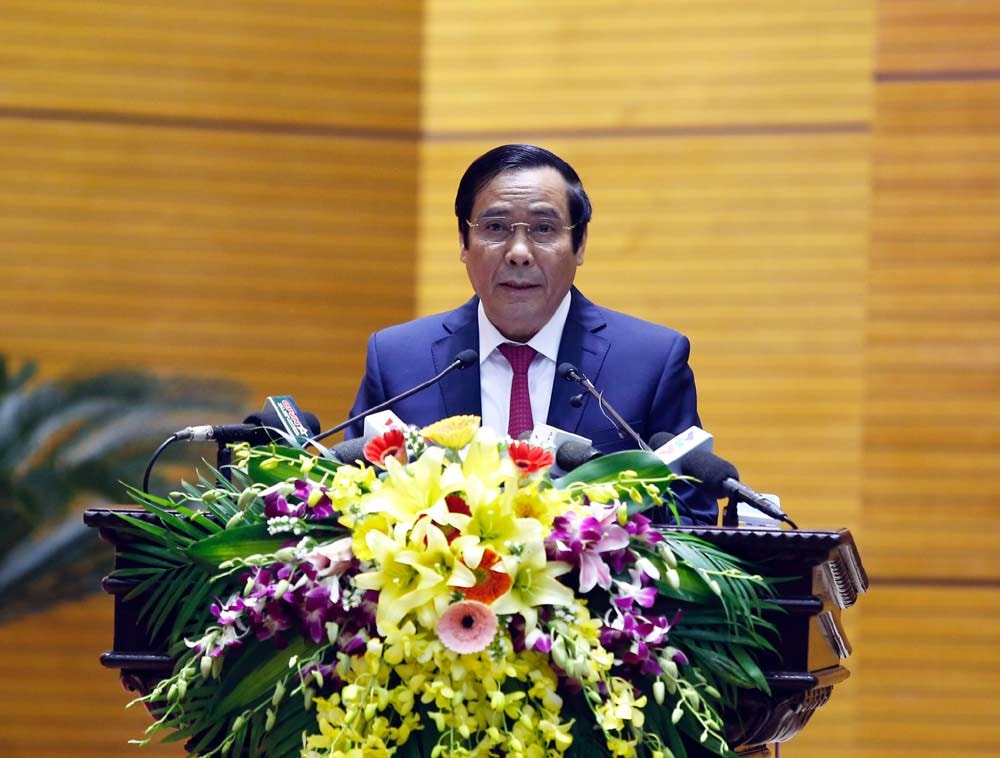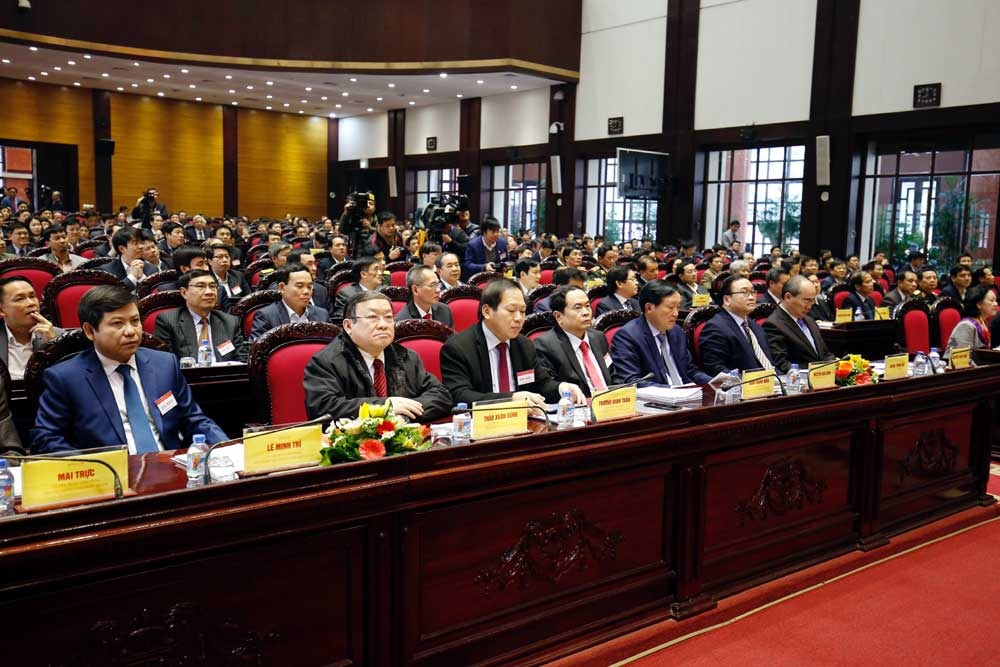Running for office and power is still a concern of the General Secretary.
The mechanism of power control and the situation of buying and selling positions and power are still concerns and worries of Party committees at all levels, especially the General Secretary, Standing Committee of Party Committees and Secretaries of Party Committees at all levels.
This morning, the Central Organizing Committee held a national conference to summarize the Party building work in 2017 and deploy tasks in 2018 with two main contents: the situation and results of the Party building work in 2017 and the topic of controlling power and preventing "buying positions and power" in the work of organizing cadres.
The Central Committee elected, appointed, transferred and rotated 424 personnel.
Briefly reporting on the situation and results of work in 2017, directions and tasks for 2018, Deputy Standing Member of the Central Organizing Committee Nguyen Thanh Binh said that in 2017, the work of Party building and rectification continued to be promoted, the fight against corruption achieved positive results; the democratic atmosphere within the Party and in society was increasingly promoted, and people's trust in the Party was consolidated and enhanced.
 |
| Permanent Deputy Head of the Central Organizing Committee Nguyen Thanh Binh. |
However, socio-economic, defense, security, and environmental issues still face many difficulties, challenges, and complex and unpredictable developments. The organization and apparatus of the political system are still cumbersome, overlapping, multi-layered, and operate ineffectively and inefficiently; personnel work and management of staff are sometimes and in some places still loose, flawed, limited, and weak...
Among the regular tasks of the industry, Deputy Head of the Central Organizing Committee Nguyen Thanh Binh said that there is a synchronous and effective implementation of personnel work.
Specifically, coordinate with relevant agencies and units to appraise personnel records, advise on the arrangement and assignment of staff at all levels in a timely, democratic, public and transparent manner.
The new point is that leaders of Party organizations at all levels carefully research, consider comprehensively, and consult many information channels to evaluate cadres, creating high consensus and unity before implementing the cadre process.
In 2017, 471 cadres were transferred, 1,467 cadres were assigned to the provincial level; 2,378 cadres were transferred, 3,500 cadres were assigned to the district level. At the central level alone, the process of election, appointment, transfer and rotation of 424 personnel was carried out, including 5 members of the Politburo and Secretariat; 3 Ministers and equivalent; 6 Heads of Central Party and mass organizations; 8 Secretaries of provinces, cities and Party Committees directly under the Central...
Along with that, the industry has gradually innovated the work of selecting officials and the process of appointing leaders and managers, implementing the policy of "piloting innovation in the selection of leaders and managers at the department, agency and division levels".
The Party building organization sector has continuously reduced its staff for 3 years. In 2017, the total number of people actually receiving budget salaries of the provincial, municipal, and central party committees was 2,044 (89.53% of the total assigned staff); the grassroots party committees were 5,371 (92.38% of the total assigned staff).
In 2017, 207,279 new party members were admitted, bringing the total number of party members to more than 4.9 million.
Regarding internal political protection work, the Organizing Committee has reviewed and assessed the political standards of 1,122 officials under the Central management; of which 47 cases that did not meet the standards and conditions were eliminated.
According to the Deputy Head of the Central Organizing Committee, the entire Party Building and Organization sector has completed a large amount of work, including many new, difficult, sensitive, and complicated tasks that have been of concern and worry for many years, and which have only now been gradually identified and resolved.
 |
| Delegates attending the conference. |
2017 is a year of high determination and great efforts in advising and organizing implementation in all aspects of work according to the 6 key tasks and 3 strategic breakthroughs set forth by the Resolution of the 12th Congress. Continue to expand democracy, innovate methods, processes and ways of working; strengthen decentralization along with power control and close inspection and supervision.
Concerns about the mechanism of power control
However, Mr. Nguyen Thanh Binh emphasized: "We are also frank, bold, and receptive to pointing out the limitations and weaknesses that need to be focused on and effectively overcome in the coming time."
Specifically, the leadership in institutionalizing and concretizing the Party's resolutions on Party building and political system building is still confused, untimely, and ineffective.
The organizational structure of the political system is still cumbersome, overlapping, multi-layered, and operates ineffectively and inefficiently; regular budget expenditures are increasing and are at a high level of 65%.
“The mechanism for controlling power and the situation of buying and selling positions and power are still concerns and worries of Party committees at all levels, especially the General Secretary, Standing Committees and Secretaries of Party committees at all levels,” emphasized the Deputy Head of the Central Organization Commission.
Talking about the causes of these limitations, he said that the awareness, role and leadership responsibility of some Party committees, organizations and leaders are not up to par and have not really paid due attention to Party building and organization work.
In addition, the regulations and statutes on Party building and organization have been supplemented and completed, but still reveal many limitations and inadequacies, affecting work efficiency as well as power control and prevention of bureaucracy and negativity in personnel work and staff management.


